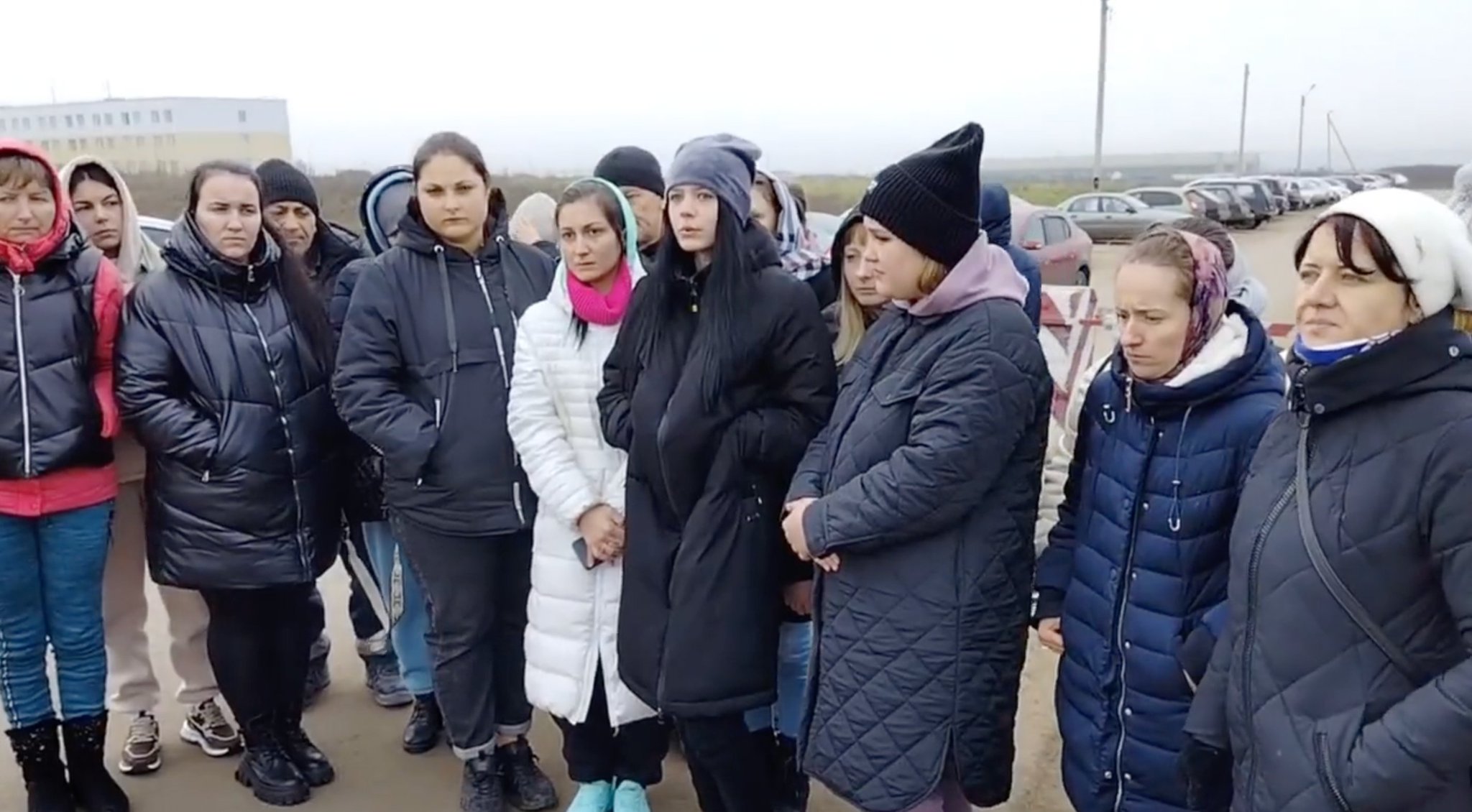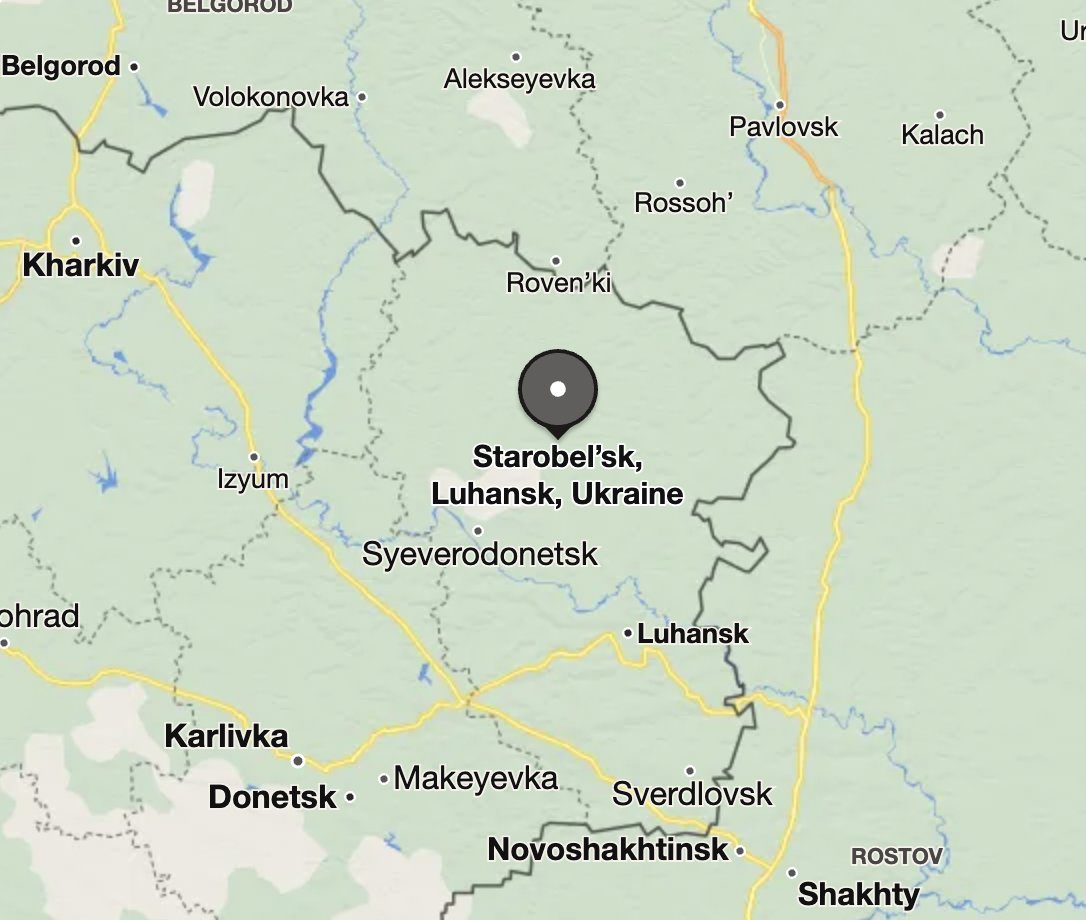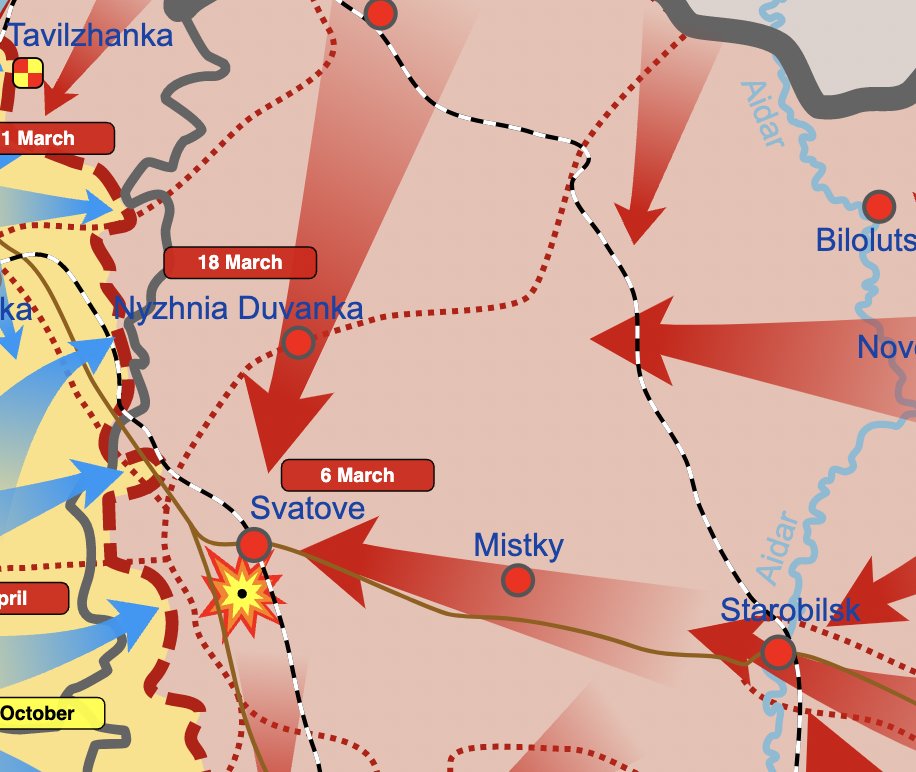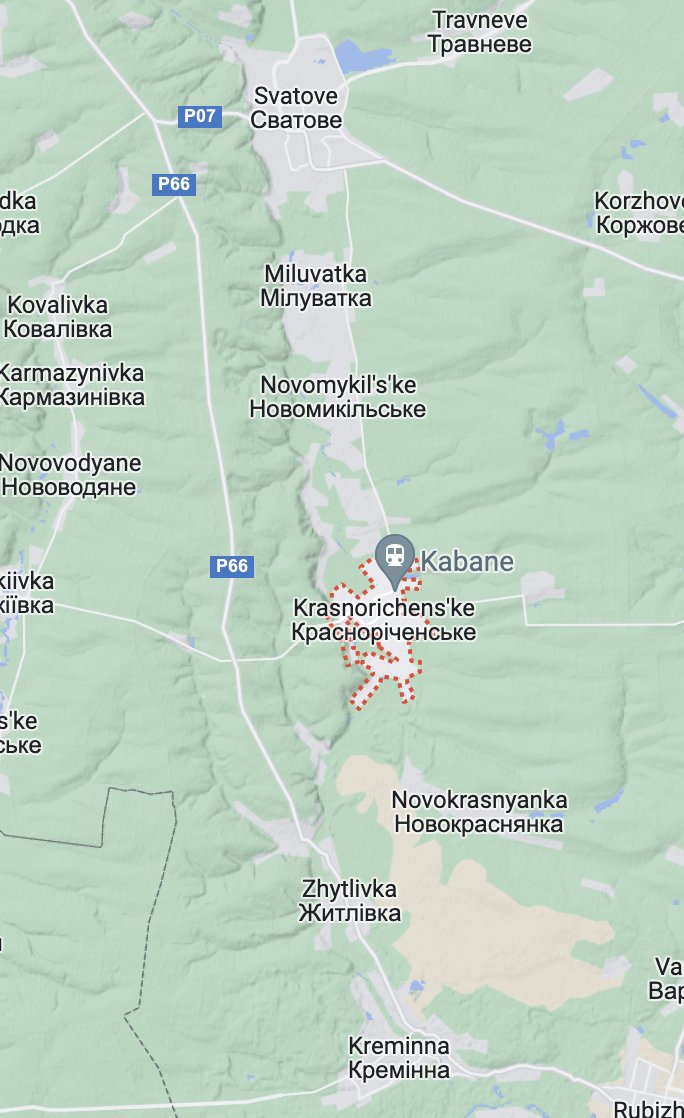Thread by ChrisO_wiki@mastodon.social
- Tweet
- Nov 11, 2022
- #Russia
Thread
1/ Wives and mothers of mobilised Russian soldiers have mounted a raid into the war zone to find and rescue their men from the Russian army. They found them sitting in fields without food. The army found the men at the same time and took them to be detained in a basement. ⬇️
2/ As reported earlier (see below), relatives of the mobilised have been trying to get the Russian authorities to bring their men home. The men are poorly or not at all trained and lack weapons, ammunition and provisions. Many have become casualties.
3/ A group of wives and mothers from Kursk appealed to the city authorities earlier this week to help their men, complaining that their commander was throwing them into the front line "like meat". The authorities were not helpful.
4/ Yesterday, around 70 of the relatives gave up waiting for help from the authorities. Instead they drove in their own cars to Starobilsk in Luhansk oblast, to where many defeated mobiks have retreated from the battles around Svatove, about 65-70 km away.
5/ The relatives say that the men were stationed at Krasnorichens'ke, a village between Svatove and Kreminna where fighting has been intense. The men suffered casualties and retreated. According to one wife, the men "walked for two days, dragging the wounded on themselves."
6/ They were ordered to go back to the front line by their commander, who treated them cruelly, according to one man's account related by his wife.
7/ "The first company was sent forward, only seven guys came back from there, after which the company commander drew crosses on them with green paint, tied their hands and started beating them. Then he took these seven guys away and no one saw them again...
8/ They are not beaten by the [Ukrainians], they are beaten by ours, they are just killed. They were just brought in as toys."
9/ The rest of the men, numbering about 60, were sent to the military commandant's office at Starobilsk. The relatives found the men camped out in the open in a nearby village, warming themselves by a fire. They reportedly had no food.
10/ At the same time that the relatives got there, an army convoy arrived and took the men away, with the relatives following behind. The military promised that the men "would now be all right". Not surprisingly, the relatives are unsure whether to believe this.
11/ The men have reportedly been promised they will not be charged with desertion, but "some kind of investigation is under way." In the meantime, they "have been housed in a basement, kept warm and fed."
12/ Although there is no further clarification of where this basement is located and what the conditions there are like, it's probable that this is another of the now notorious basement-prisons established by the Russian army in the region.
13/ "They have been given food, given pills, everything is fine. They were told that they will be hospitalized. They say it's all beautiful but we don't know whether to believe it or not," says one of the relatives.
14/ "But we fulfilled the task of getting them away from the shelling. Then all the guys will call back, we'll see, for now we don't know anything else."
Even living in a basement is better than being on the front line, says one of the mobilised men.
Even living in a basement is better than being on the front line, says one of the mobilised men.
15/ "After lying in a trench for so many days and hiding under corpses, the basement is [like living in] royal conditions."
The men's harrowing experience on the front line has deeply traumatised them, according to their relatives.
The men's harrowing experience on the front line has deeply traumatised them, according to their relatives.
16/ "Our guys are so grey, so old, their eyes are empty, they don't believe anyone. When we stopped, they said: you won't believe how happy we are to see Region 46 [Kursk Oblast number plates]. They are looking at us, waiting for help, and we can't help them with anything."
17/ Another group of mobilised men is said to be stranded in abandoned houses in one of the frontline settlements (probably Svatove). They escaped from Ukrainian shelling but are said to be unable to return to their unit because Russian roadblocks are in their way.
18/ According to the wife of one of the men, the group are thinking of returning to their unit and signing a three-month contract in the hope that they will not be left on the front line as contract soldiers.
19/ This likely reflects previous reports that have suggested that contractors are being positioned further back from the front line than mobiks. According to one report, Wagner convicts are being placed in front of mobiks, with contract soldiers last.
20/ However, the mobilised men are likely to be disappointed if they do this – a 'three-month contract' is meaningless at this point as all contract soldiers are being made to serve indefinitely until the war is over. /end
Mentions
See All
Jason Scott Montoya @JasonSMontoya
·
Jan 11, 2023
- Curated in Russia’s Troop Treatment




